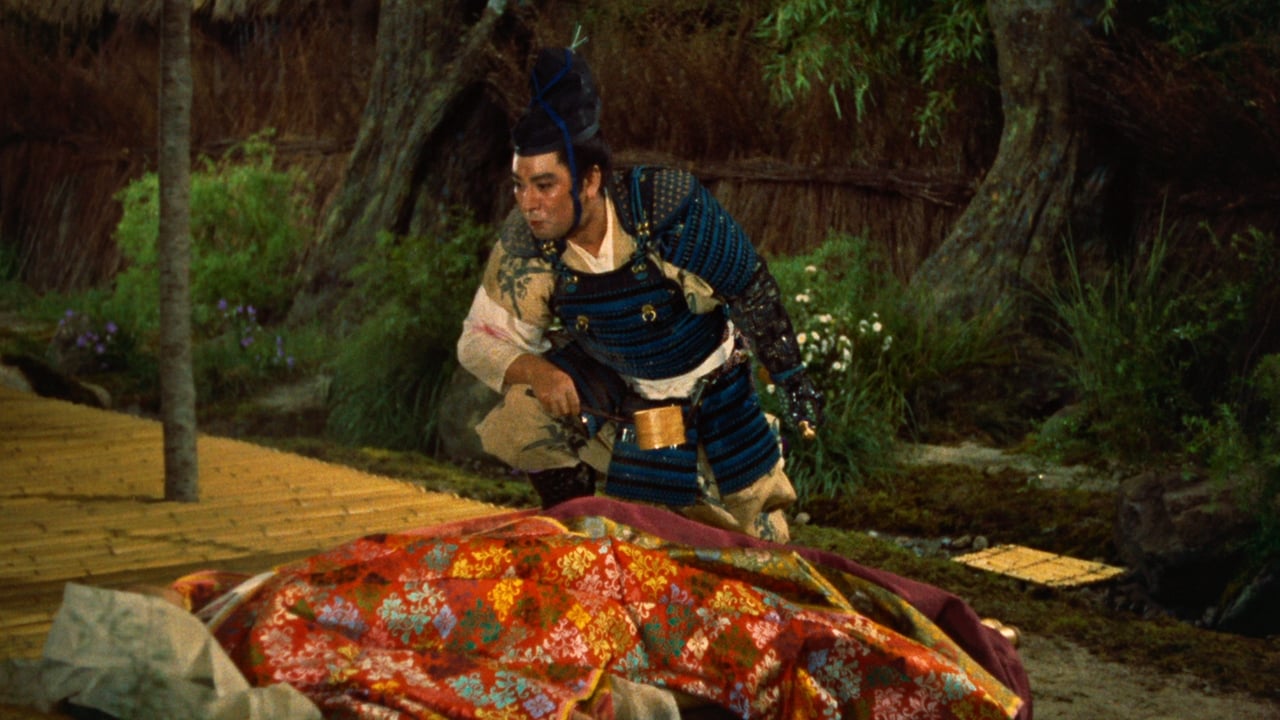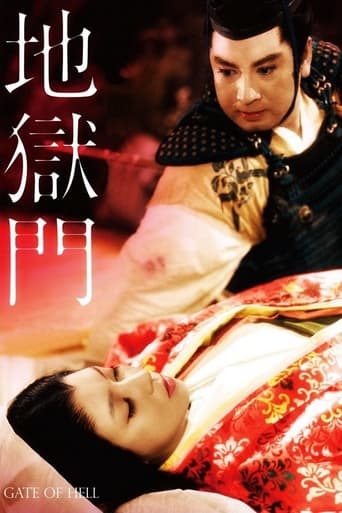Titreenp
SERIOUSLY. This is what the crap Hollywood still puts out?
Intcatinfo
A Masterpiece!
Bessie Smyth
Great story, amazing characters, superb action, enthralling cinematography. Yes, this is something I am glad I spent money on.
Sabah Hensley
This is a dark and sometimes deeply uncomfortable drama
GlennDavidTaylor
Wow! What an awesome movie. The leading lady was gorgeous, the shots were magnificent, the music was fantastic, and overall, this was a great movie.Although it is in Japanese, and I saw it with subtitles, it is still the best movie I have seen all year.This movie totally held my attention, and delivered everything I could have wanted, but not in the way that I expected. Wow! Easy to see why this movie won an Oscar for best foreign film. I would say that it is as good as any movie I have ever seen. I loved it.If you are looking for something different from a film, give this one a look. You will not be disappointed.Desert-Buddha
sonztwin
I saw this last night on TCM, which, BTW, is a rare treasure in this medium called the "idiot box". Isn't it remarkable that this movie is 53 years old, and it still sparkles? What an accomplishment! It had the ingredients of a truly great film - complex characters that are developed fully and efficiently, great story-telling with attention to details, and good acting - a little stylized, but keep in mind that that impression might be due partially to Westerners unfamiliarity with Japanese culture, and partially to how the definition of "good acting" has evolved.I love the film's nobility and moral rectitude. Those were the days when (and we were in a culture where) "doing the right thing" was the expected norm. It was seen in Moritoh's loyalty at the price of - at least it seems at the time - expediency, which was preceded by Kesa's unflinching sense of duty and willingness to lay down her own life. This is the beauty of Kesa's "soul" that Moritoh found out all-too-late he failed to see, which manifested itself as bookends in the plot, but is in fact the moral center of the movie. Such ideals are no longer frequently or fully embraced these days. Look at how we glorify criminals in shows like The Sopranos and Thief. I also liked how the plot falls together: Kesa's readiness to sacrifice herself at the outset of the story made her self-immolation at the end of the film ring true. The little details: remember the talk of chestnuts when Moritoh first saw Kesa with her aunt? We saw later on those very chestnuts hanging on the swaying trees during Moritoh's unfortunate night time visit. When Wataru and Kesa took what turned out to be their last walk in the garden under a full moon, it was all peace and serenity. The very same setting is transformed sinister and ominous just moments later, with the moon now hidden by clouds, as Moritoh slowly emerges out of the darkness in the background - a truly masterful and memorable scene in the history of cinema.The theme of "folly" pervades the movie: we see a lot of it just from one character, Lord Kiyamori - and he's a top dog and a leader! His son had to advise him to act quickly to quash the uprising when we first see him. He then failed to reward Kesa, who is every bit as deserving as Moritoh of recognition. Even if you chalk that failure up to be culturally driven, we have his Jephthah-like stupidity and arrogance in giving Moritoh pretty much carte-blanche in his wish for a reward. What's more, we have his incessant and insensitive teasing - instrumental in precipitating the tragedy, in that it made the proud Moritoh all the more determined to have Kesa. Was Wataru cowardly, foolish, or both, when he "threw" the race? Lest you missed it, there's the cruel irony of Moritoh's comment after his brother's treachery resulted in his execution, "My brother was a foolish man". Well you proved to be no Solomon, Moritoh.I thought it was a little frustrating to watch Kesa's helplessness when Moritoh blackmailed her. Surely there's another way out, woman! But I suppose that's part of the tragic theme: all the characters had strengths as well as tragic flaws. At the risk of second-guessing the director of a great movie, I felt that he could have kept the identity of the person in bed a secret until the moment of truth, but I'm sure I need to remind myself that this is not meant to be a thriller. I'd like to watch this movie again, maybe along with a movie it reminds me of: Kurosawa's Ran.
MartinHafer
Despite my love for Japanese films, I felt very underwhelmed by this picture. The plot was interesting (about a man who MUST have a married woman and demands her hand when he is offered ANY reward for his service to the Shogun), and the color cinematography is great BUT overall, the film felt a little too sterile--as if the actors were over-restrained in their performance. This is really a shame, as despite a great ending and an interesting premise, just doesn't elevate itself to greatness. I gave my videotape to a friend and asked his opinion and he, too, felt the film was a bit dull and sterile at times. This seemed to be an attempt to make a great film that just needed more polish to raise it above mediocrity.
dwjjunk
Being a fan of the "Samurai" genre, I was taken in by this film. I actually found this video at the local library. The visuals are wonderful, sword-play is very realistic, acting is excellent. The plot comes on strong, but becomes very predictable by the end. Still, worth checking out.

